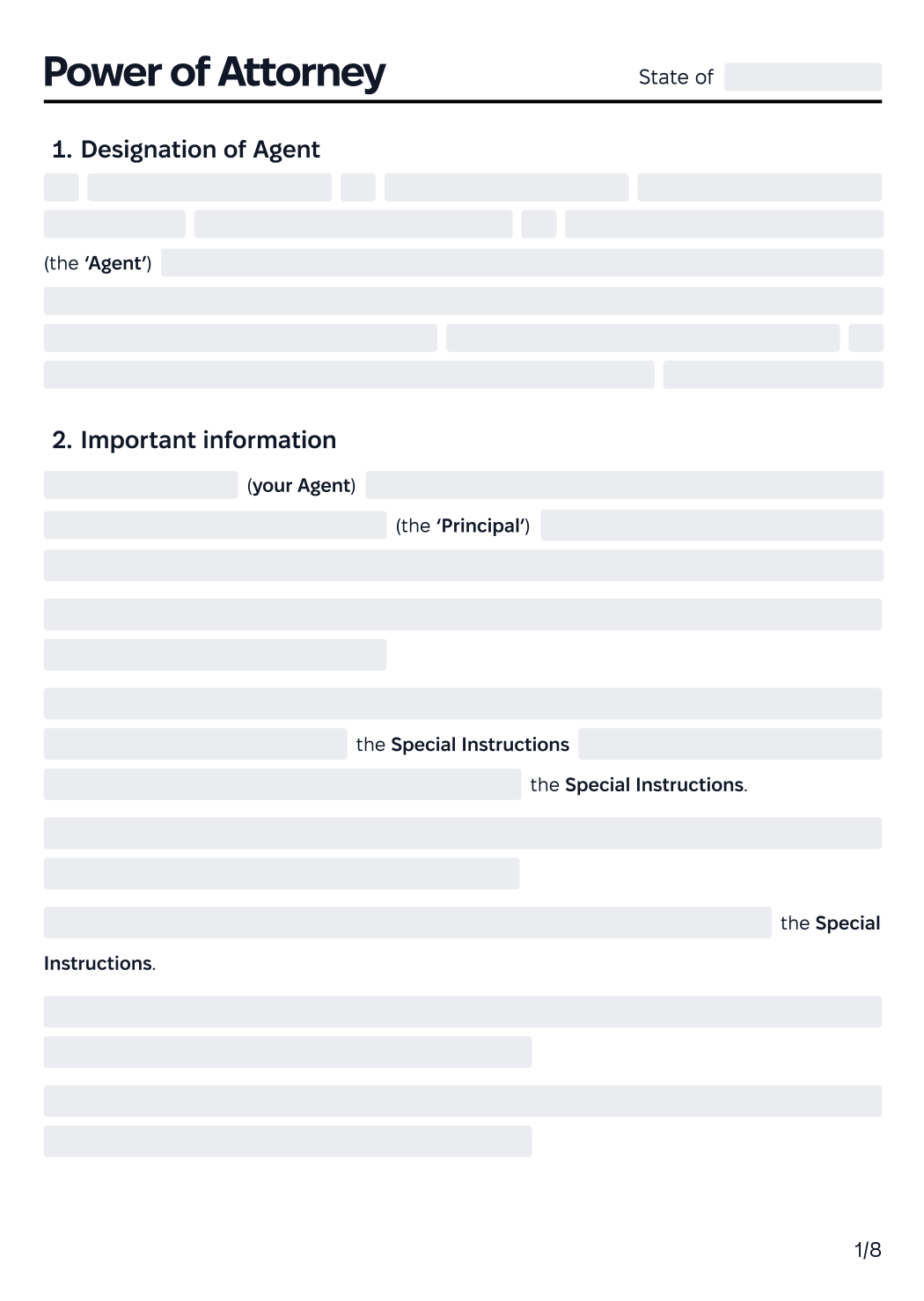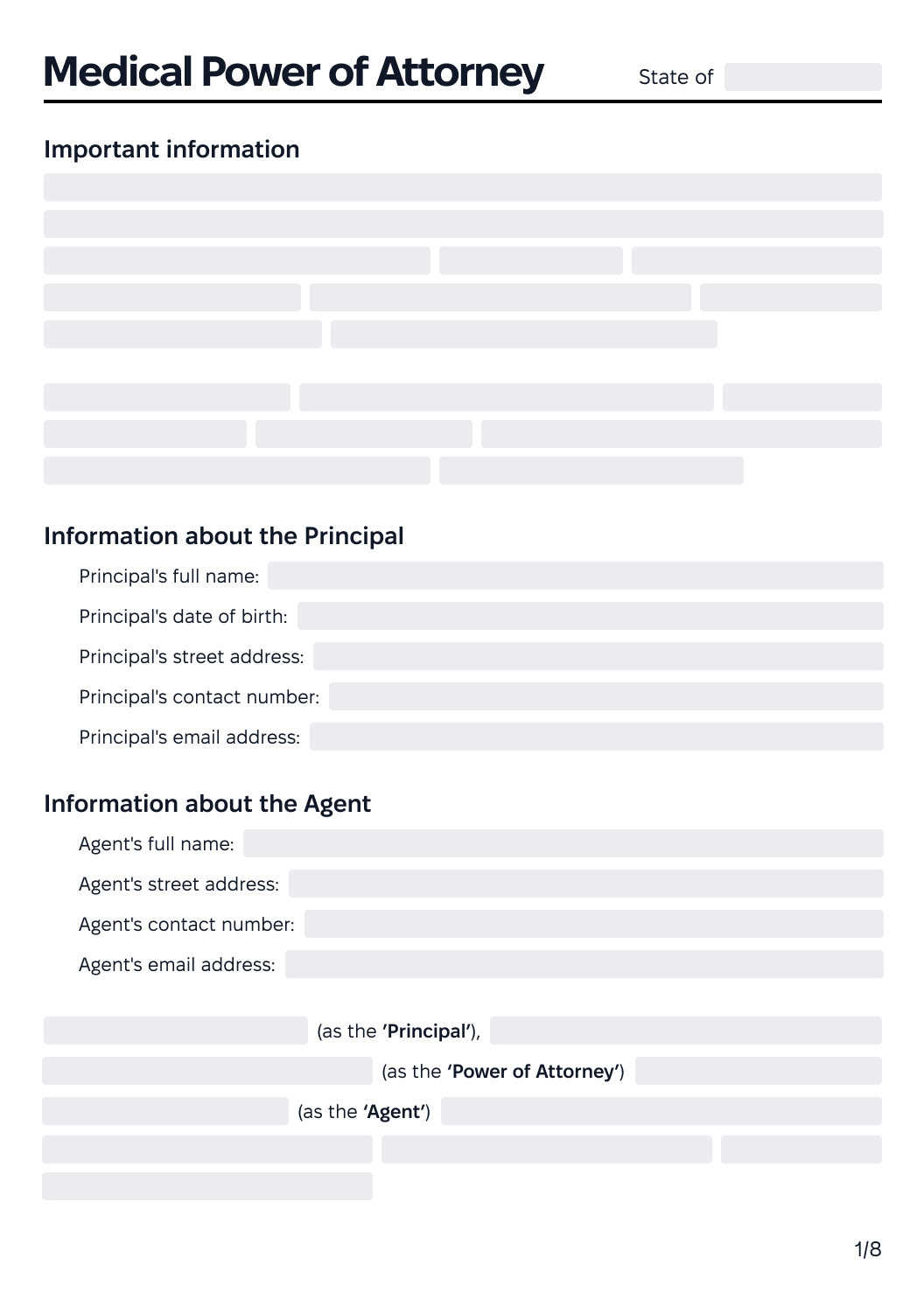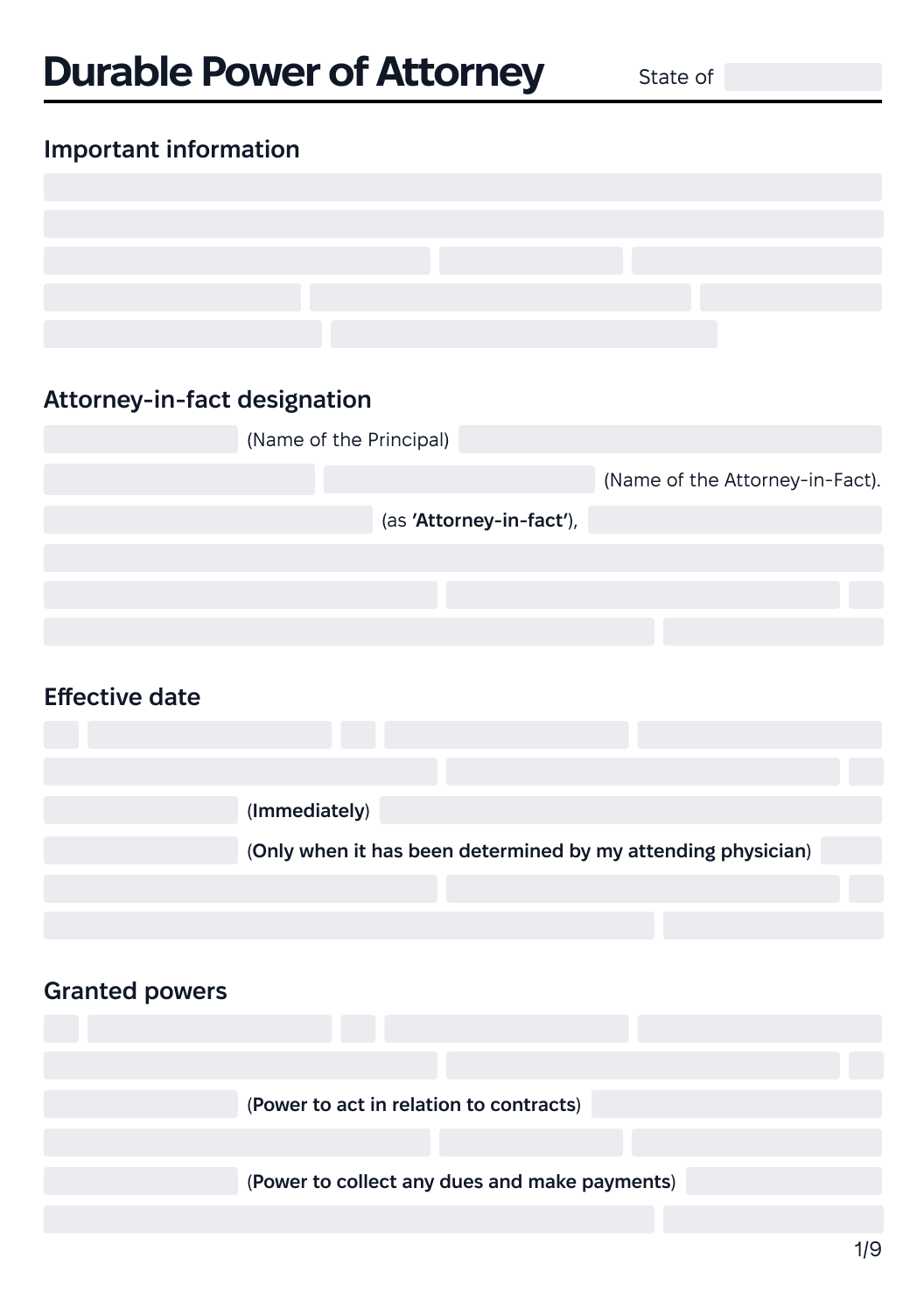What is the Power of Attorney?
A power of attorney is a legal document that one person, called the “principal,” creates to authorize another person, called an “attorney-in-fact” or “agent,” to act on their behalf and represent their interests.
The principal can issue a general power of attorney and authorize the agent to take all necessary actions in the principal’s interest and represent them before all third parties. However, the principal can also specify the activities the agent is allowed to undertake by issuing a limited power of attorney.
The principal issues the power of attorney to enable another person to represent them in case they become incapacitated or unable to represent themselves in other ways due to their allocation, lack of professional knowledge, or anything else.
They can authorize the agent to represent them in certain business transactions, to file a lawsuit on their behalf, to represent them before the tax or other authorities, to buy, sell or manage the real estate on their behalf, etc.
Power of Attorney Form by States
- Alabama
- Alaska
- Arizona
- Arkansas
- California
- Colorado
- Connecticut
- Delaware
- Florida
- Georgia
- Hawaii
- Idaho
- Illinois
- Indiana
- Iowa
- Kansas
- Kentucky
- Louisiana
- Maine
- Maryland
- Massachusetts
- Michigan
- Minnesota
- Mississippi
- Missouri
- Montana
- Nebraska
- Nevada
- New Hampshire
- New Jersey
- New Mexico
- New York
- North Carolina
- North Dakota
- Ohio
- Oklahoma
- Oregon
- Pennsylvania
- Rhode Island
- South Carolina
- South Dakota
- Tennessee
- Texas
- Utah
- Vermont
- Virginia
- Washington
- West Virginia
- Wisconsin
- Wyoming
Different Power of Attorney Forms by Type
Durable (statutory) power of attorney. This type of power of attorney remains effective even if the principal becomes incapacitated.
General power of attorney. The principal can use a general power of attorney to authorize the agent to take all the necessary actions on their behalf.
Limited power of attorney. This power of attorney provides the list of activities the agent is allowed to take on the principal’s behalf.
Parental power of attorney. Enables another person to make decisions about a minor in case their parent becomes unable to do so.
Medical power of attorney. Principal issues this document to authorize another person to make decisions regarding their health treatment.
How to Get a Power of Attorney
#1. Understand Different Power of Attorney Forms
To authorize the agent to complete only specific actions and interact only with certain third parties on your behalf, issue a limited power of attorney. Otherwise, you can use the general power of attorney.
If you want a power of attorney to become effective only if you become unable to act for yourself, you can issue a springing power of attorney.
If you need help with certain matters (e.g., tax, real estate, litigation, etc.), you can choose a specific power of attorney for these purposes.
#2. Identify Attorney-in-Fact
Choose a person of legal age to be your attorney-in-fact and who has the legal capacity to represent you.
That person should also be able and willing to represent you. And most importantly, your agent should be someone you trust.
#3. Fill out the Form
Enter all the relevant details about yourself and your attorney-in-fact, such as your names and mailing addresses. Secondly, you should specify the authorities the attorney-in-fact will have.
In the end, provide details about the validity of the document. The document can become valid from the moment of issuing it or after a certain date or event.
#4. Sign the Form
Finally, you should sign your power of attorney. One or more witnesses or a notary public must attest to your signature, depending on the state where you issue a power of attorney.
How to Write a Power of Attorney Form
To write the power of attorney, fill out the simple form, and the generator will insert all the information in the power of attorney template.
#1. Add Principal Information
Insert the first and last name of the principal and their mailing address. If necessary, you can insert additional information, like their ID number.
#2. Add Attorney-in-Fact Information
Here you will enter the full name and mailing address of the attorney-in-fact. Moreover, you can add additional information if you find it relevant.
#3. Grant Specific Authority
Here are the most common authorities you can delegate to your attorney-in-fact:
Authority Scope
Medical authority. The agent will be able to make decisions regarding your healthcare and medical treatment.
Child care authority. The agent will be able to make the decisions regarding your child’s care, education, and healthcare, in case you are unable to do so.
Real estate authority. It enables the agent to participate in the real estate transaction on your behalf or to manage your real estate instead of you.
Tax authority. The agent will be able to represent you before the tax authorities, submit tax reports, make payments, and do other tax-related activities.
#4. Write Additional Instructions (Optional)
In this section, you can provide certain limitations or give special instructions about the authority of the attorney-in-fact and how they can exercise it.
#5. Set the Power of Attorney Duration
You can state that your power of attorney becomes effective from the moment you sign it, from a certain date in the future, or from a certain event that might or might not happen.
Secondly, you can specify when your power of attorney will terminate. It can be after a certain date or after the activity the agent is authorized for is completed.
#6. Sign the Form
Finally, you should sign your power of attorney. In some states, your signature must be acknowledged by one or more witnesses and a notary public.
Power of Attorney FAQ
It’s always advisable to have a professional draft of your power of attorney. However, you don’t have to hire a lawyer now. Just enter the necessary information in our power of attorney generator, and it will create a professional power of attorney for you.
You need a power of attorney in every situation when you are unable to represent your own interests, either due to your medical condition, old age, your location, or for any other reason.
If you issue a durable power of attorney, it will remain effective even after you become incapacitated.
Depending on the state in which you are planning to use your power of attorney, your document must be acknowledged by the notary public. By notarizing a power of attorney, you confirm the authenticity of the document and prevent any disputes.
You can easily revoke your power of attorney by issuing the revocation power of attorney. Here you can specify which power of attorney you wish to revoke by providing details about it, like the date of issuing and the name of the attorney-in-fact.
Yes, you can do so by issuing a new power of attorney where you will update the information about the principal or the agent or change the scope of authority you are delegating to the agent.
A will and a power of attorney serve two different purposes. A will serves to allocate your property after you pass away, while a power of attorney enables another person to represent and protect your interests during your lifetime. Therefore, you should still create a power of attorney even if you already have a will.


